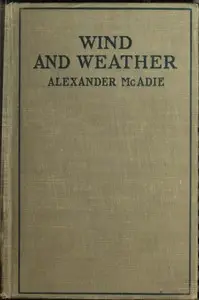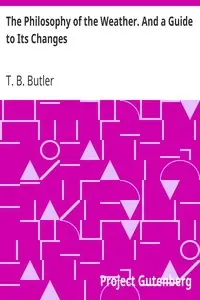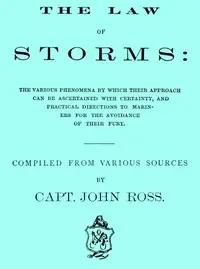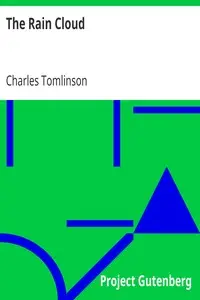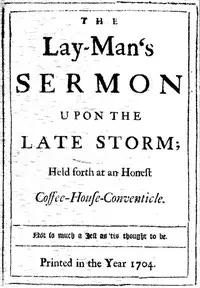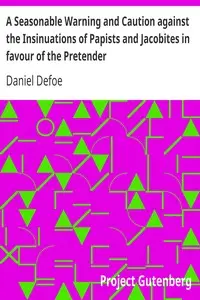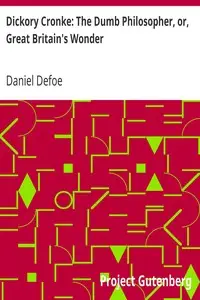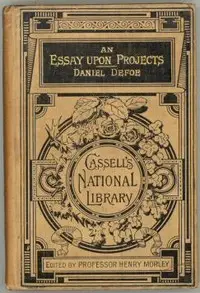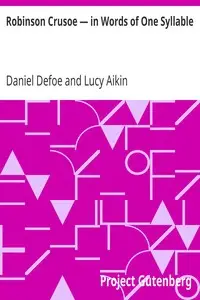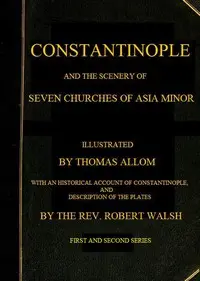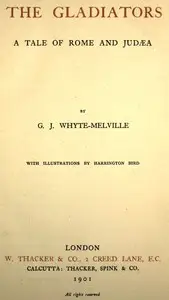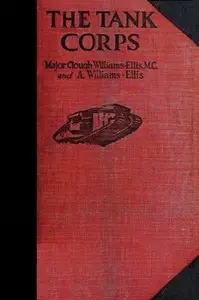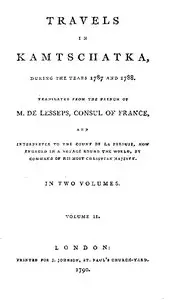"The Storm" by Daniel Defoe is a historical narrative that recounts the most significant accidents and catastrophes that took place during a formidable storm, impacting both maritime and terrestrial environments. Integrating scientific investigation with theological contemplations, the book thoroughly documents the natural causes of the storm, particularly the origins of the winds that led to such widespread destruction. It acknowledges historical perspectives on weather events while also engaging with the skepticism of his time regarding the extreme nature of the recounted events. Defoe merges meteorological observations with theological arguments about the existence and influence of God in the natural world, framing the detailed examination of the storm’s impact within a context of divine presence and authority.
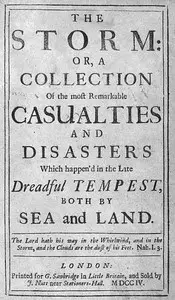
The Storm or, a Collection of the most Remarkable Casualties and Disasters which Happen'd in the Late Dreadful Tempest, both by Sea and Land
By Daniel Defoe
An unprecedented storm unleashes chaos upon land and sea, leaving behind a trail of remarkable disasters and prompting reflections on both the power of nature and the hand of God.
Summary
About the AuthorDaniel Defoe was an English novelist, journalist, merchant, pamphleteer and spy. He is most famous for his novel Robinson Crusoe, published in 1719, which is claimed to be second only to the Bible in its number of translations. He has been seen as one of the earliest proponents of the English novel, and helped to popularise the form in Britain with others such as Aphra Behn and Samuel Richardson. Defoe wrote many political tracts, was often in trouble with the authorities, and spent a period in prison. Intellectuals and political leaders paid attention to his fresh ideas and sometimes consulted him.
Daniel Defoe was an English novelist, journalist, merchant, pamphleteer and spy. He is most famous for his novel Robinson Crusoe, published in 1719, which is claimed to be second only to the Bible in its number of translations. He has been seen as one of the earliest proponents of the English novel, and helped to popularise the form in Britain with others such as Aphra Behn and Samuel Richardson. Defoe wrote many political tracts, was often in trouble with the authorities, and spent a period in prison. Intellectuals and political leaders paid attention to his fresh ideas and sometimes consulted him.

